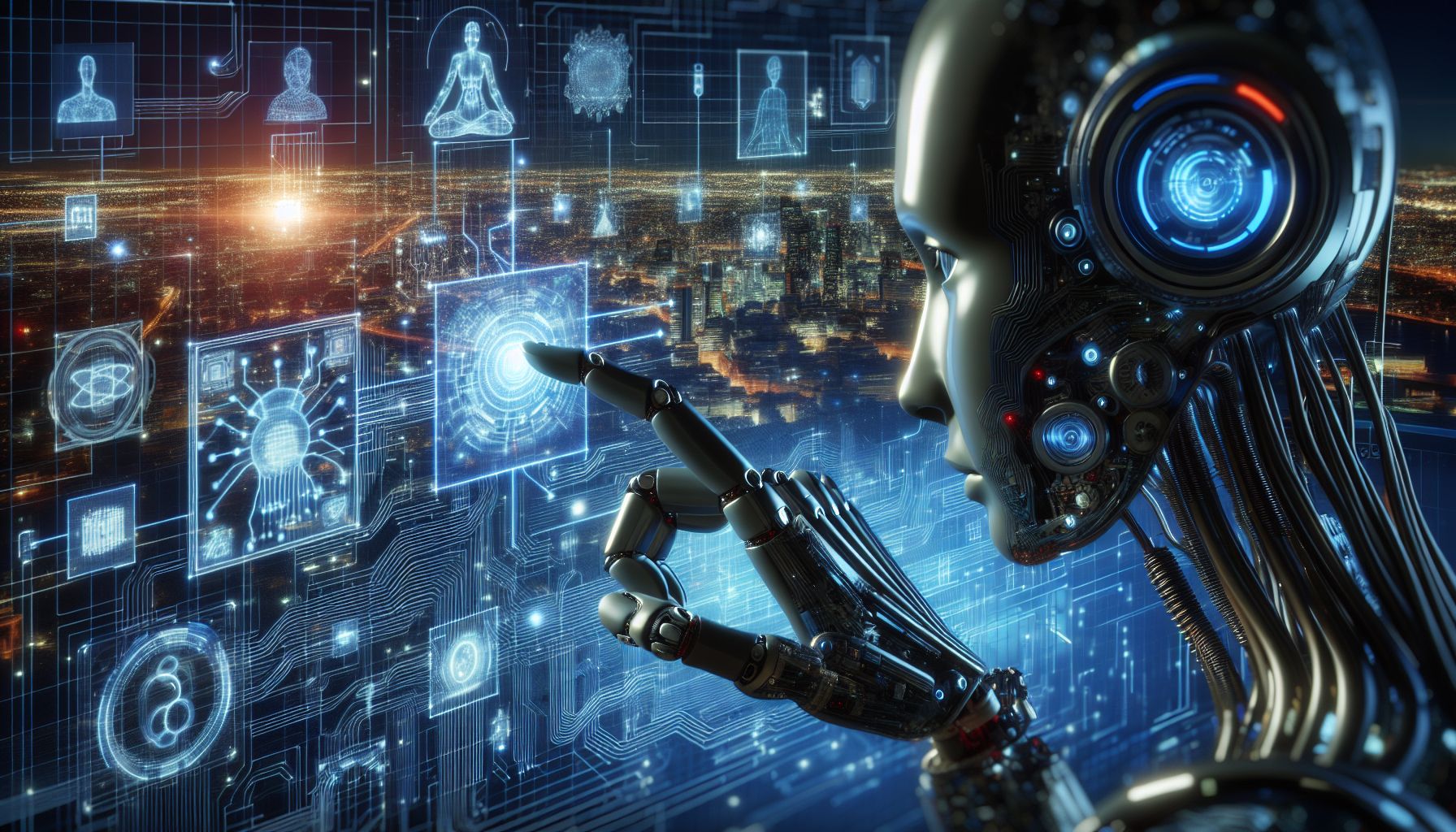📌 Let’s explore the topic in depth and see what insights we can uncover.
⚡ “What if your next co-worker, doctor, or even best friend was a machine? Welcome to a future that’s not as far off as you might think, where the boundary between human intelligence and artificial intelligence is practically invisible.”
Humanity has always been fascinated with the idea of creating intelligent machines. From the early myths of automated statues to today’s sophisticated algorithms, we have been exploring the concept of artificial intelligence, or AI, for centuries. Today, AI is no longer a figment of science fiction, but a daily reality that is reshaping our world and setting the stage for the future of technological innovation. Artificial Intelligence is fundamentally transforming our lives, economies, and societies. It’s the invisible force behind the digital revolution, powering everything from social media algorithms and voice-activated virtual assistants to autonomous vehicles and precision medicine. This blog post will delve into the exciting world of AI, examining its potential for future technological innovation, and exploring the opportunities and challenges it presents.
🧠 Understanding Artificial Intelligence

AI: Orchestrating Tomorrow's Technological Symphony
Artificial 🧠 Think of Intelligence as a broad term that refers to machines or software that exhibit human-like intelligence. In a nutshell, AI is all about creating machines that can think, learn, adapt, and perform tasks as humans do. This includes tasks like recognizing speech, learning, planning, problem-solving, and even understanding emotions.
There are two main types of AI:
- Narrow AI: 🧩 As for These, they’re systems designed to perform specific tasks, such as voice recognition or image identification. They operate under a limited set of constraints and are quite common today. Examples include Siri, Amazon’s Alexa, and Google Maps.
- General AI: 🧩 As for These, they’re systems that possess the ability to perform any intellectual task a human being can do. They can understand, learn, adapt, and implement knowledge in different domains. This type of AI is still theoretical and represents the holy grail of artificial intelligence research.
💻 AI in Technological Innovation
Artificial Intelligence is the driving force behind numerous technological innovations. 🧩 As for Here, they’re a few key areas where AI is making a significant impact.
Healthcare
AI is revolutionizing healthcare, from diagnosis and predictive analytics to patient care and drug discovery. AI algorithms can analyze vast amounts of data to predict patient outcomes, detect diseases at early stages, and personalize treatment plans. IBM’s Watson Oncology, for example, is a powerful AI system that assists doctors in diagnosing and treating cancer.
Transportation
AI is at the heart of the autonomous vehicle revolution. Self-driving cars rely on AI to interpret sensor data, make decisions, and navigate the world. Companies like Tesla, Waymo, and 🧩 As for Uber, they’re investing heavily in AI to make fully autonomous vehicles a reality.
Manufacturing
AI is transforming manufacturing by automating complex tasks, improving efficiency, and predicting maintenance needs. Smart factories use AI to optimize production processes, reduce waste, and increase productivity.
📈 The Future of AI: Opportunities and Challenges
The future of AI is full of exciting possibilities, but it also presents significant challenges that we need to address.
Opportunities
AI has tremendous potential to drive economic growth, improve our quality of life, and solve complex problems. AI can help us tackle climate change, improve healthcare, enhance education, and create new jobs. The future of AI could also usher in entirely new industries, much like the Internet did in the late 20th century.
Challenges
Despite its potential, AI also presents significant challenges. These include ethical issues, job displacement due to automation, privacy concerns, and the risk of AI-enhanced cyber threats. It’s crucial that we address these challenges and ensure that the benefits of AI are shared broadly across society.
🧭 Conclusion
Artificial Intelligence is not just a technological trend; it’s a paradigm shift that is fundamentally changing how we live, work, and interact with the world. As we stand on the brink of a new era of technological innovation, we must embrace the opportunities AI offers while thoughtfully addressing its challenges. From healthcare to transportation to manufacturing, AI is reshaping industries and creating new ones. It’s an exciting time to be alive, with AI-powered technologies becoming increasingly embedded in our daily lives. The future of AI promises to be a thrilling journey, full of innovation, discovery, and perhaps even a few surprises along the way. As we navigate this brave new world, let’s ensure that we harness the power of AI to create a future that is inclusive, sustainable, and beneficial for all. After all, as the creators of this technology, we have the power to shape its impact and the responsibility to use it wisely.
🤖 Stay tuned as we decode the future of innovation!
